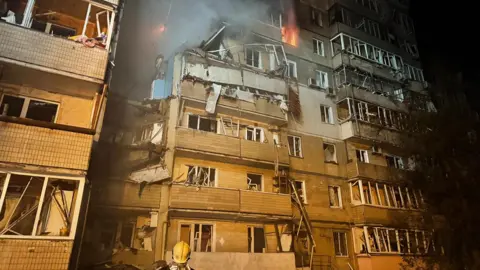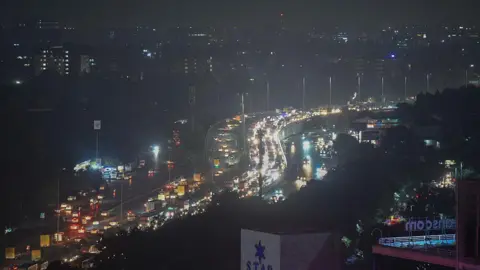Authorities in Germany announced on Wednesday the arrests of the three individuals over the past week, with investigations indicating that they were linked to Russian state actors. The federal prosecutor's office revealed that the men are considered foreign agents, and their plans involved testing parcels that contained explosive devices and GPS trackers to trace their destinations in Ukraine.
One of the men, identified as Vladyslav T., reportedly posted two test packages from Cologne aimed at assessing the route to Ukraine. Another individual, Yevhen B., who was detained in Switzerland, was allegedly directing the operation, while Daniil B. is believed to have facilitated the delivery of items for the test packages.
The prosecutor's statement did not specify exact targets, but it highlights increased Russian hybrid threats in Germany. The arrests come after a series of similar incidents, including an explosion at a DHL facility in Leipzig, which Western intelligence attributed to the Russian Military Intelligence Agency (GRU). This incident reportedly was a precursor to further attacks, underscoring the emerging threats.
In recent months, various European nations have raised alarms about suspected arson attacks linked to Russian operatives. For instance, Polish Prime Minister Donald Tusk recently attributed the destruction of a shopping mall in Warsaw to Russian state management, reflecting heightened anxiety over espionage and disruption efforts by Russia.
Amid these developments, German Chancellor Friedrich Merz noted the severity of the situation in his inaugural address, drawing attention to the espionage and disinformation campaigns attributed to Russia. The growing concern underscores the complexities of geopolitical tensions exacerbated by sabotage threats in Europe.
As the investigation progresses, the implications of these arrests, amid a backdrop of ongoing war and unrest, could reshape the European response to Russian interference and security protocols within critical infrastructure sectors.
Christopher F. Schuetze is a reporter for The Times based in Berlin, focusing on political matters and cultural dynamics across Germany, Austria, and Switzerland.
One of the men, identified as Vladyslav T., reportedly posted two test packages from Cologne aimed at assessing the route to Ukraine. Another individual, Yevhen B., who was detained in Switzerland, was allegedly directing the operation, while Daniil B. is believed to have facilitated the delivery of items for the test packages.
The prosecutor's statement did not specify exact targets, but it highlights increased Russian hybrid threats in Germany. The arrests come after a series of similar incidents, including an explosion at a DHL facility in Leipzig, which Western intelligence attributed to the Russian Military Intelligence Agency (GRU). This incident reportedly was a precursor to further attacks, underscoring the emerging threats.
In recent months, various European nations have raised alarms about suspected arson attacks linked to Russian operatives. For instance, Polish Prime Minister Donald Tusk recently attributed the destruction of a shopping mall in Warsaw to Russian state management, reflecting heightened anxiety over espionage and disruption efforts by Russia.
Amid these developments, German Chancellor Friedrich Merz noted the severity of the situation in his inaugural address, drawing attention to the espionage and disinformation campaigns attributed to Russia. The growing concern underscores the complexities of geopolitical tensions exacerbated by sabotage threats in Europe.
As the investigation progresses, the implications of these arrests, amid a backdrop of ongoing war and unrest, could reshape the European response to Russian interference and security protocols within critical infrastructure sectors.
Christopher F. Schuetze is a reporter for The Times based in Berlin, focusing on political matters and cultural dynamics across Germany, Austria, and Switzerland.


















